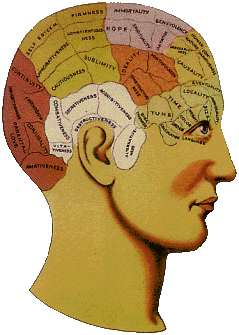.:. home .:. essays & notes .:.
.:. hosted texts .:. guestbook .:.
essays & notes
Mental digestion:
the mind as a sensory & digestive organ

"Just as material objects appear within the perceptual range of sight, thoughts appear within the perceptual range of the mind."
- Aphorisms {10.30.07}
- The mind as a sensory organ -
Most people are predisposed to thinking that the thoughts they have are their own. If we take the mind to be an organ just like the rest in our body, many interesting insights come about. Firstly, no one would ever think to lay claim to the various sights, sounds, tastes, smells, and feelings that are received by the senses. When we smell a nice floral scent, we ascribe it to our close proximity to flowers; when we see a sight, we ascribe it to its being within the perceptual range of our vision. As the quotation heading this short essay reads, the mind with its thoughts should be treated no differently than the five normal sensory organs.
Further on this subject it is written, "Can any idea be truly said to be thought by the thinker? Thoughts happen, they are not thought. " (Aphorisms
 , 10.26.07). We would never say that we create our sensory perceptions with our sensory faculties - that our sense of hearing creates the sounds we hear, for example - but rather we would say that these faculties interpret already existing phenomena to the awareness/consciousness.
, 10.26.07). We would never say that we create our sensory perceptions with our sensory faculties - that our sense of hearing creates the sounds we hear, for example - but rather we would say that these faculties interpret already existing phenomena to the awareness/consciousness. In this way, we may treat the mind as a perceiver of thoughts much as the eyes (and its various connections to the nervous system) are the perceiver of sights, the nose is the perceiver of smells, etc.
First we considered the mind as a sensory organ like our taste, touch, smell, sight, and hearing which perceives thoughts as the other senses perceive their respective sense objects. Further, the mind may be considered as a digestive organ - that is, it may be seen to perform the functions of accepting substance, integrating what is useful in this substance, and discarding what is useless and wasteful. Just as the digestive system of the human body receives food and water, integrates the nutrients that are needed to maintain the functioning of the organism, and excretes the unnecessary waste products, the mind performs the same function with thoughts. Other analogies in the body of this process are readily discernible such as the lungs receiving of air, integrating the oxygen, and expelling carbon dioxide.
When we consider the amount of thoughts that people are bombarded with, (the general estimate is around 80,000 per day) it becomes clear that this 'mental digestion' is of the utmost importance. If the catabolic actions in our digestive system were to cease and "accept" all food as important to the functioning of the organism, our body would literally become clogged with impurities and be unable to assimilate further food. Just as this is so in the physical digestion, if our mind was to register each thought as important and relevant, our minds would become similarly clogged, unable to assimilate further thoughts as the waste from previous ones had not yet been 'excreted' (i.e. forgotten).
The mind must stay within its sphere of operation exactly as any organ should. If the stomach were to extend its abilities to facets of the body where it is not needed, it would cause more chaos and ill health. For example, the stomach would certainly be overreaching its effective sphere of operation if it attempted to pump blood instead of the circulatory system or breathe air instead of the lungs (i.e. its "going down the wrong tube"). Similarly, the mind must attend to its own duties and never overextend its abilities to problems it cannot fix.
The first implication of treating the mind as an organ is that we will stop laying claim to thoughts as our own. This eliminates immediately the attachment associated with mental ideas - if people do not identify with their thoughts and ideas, when their thoughts and ideas are proven to be false they will not feel attacked.
Secondly, if this analogy is continued we may see that thoughts will be treated on the basis of their effectiveness to contribute to our health and growth just as food is for the stomach and air for the lungs. Since people are not identified and attached to their thoughts, they will much easier give them up for newer, more effective thoughts without hestitation.
Thirdly, the mind is "taken down a peg." Many philosophers have claimed that Reason is the royal road (or the only road!) to truth. Others have equated Reason with God "Himself" (often referring to the first chapter of John where he refers to the "logos" which is often translated as "the Word" or even "Reason"). Now we may see that the mind is not the be-all-end-all answer to every problem. In fact, it causes further problems by attempting to attend to problems it is not suited to fix.
With all this 'in mind,' perhaps we may see a further evolution of the human species where the organ of the mind is slowly subjugated to a less and less important place in the functioning of the organism, and maybe even eventually becoming a vestigial organ just as our appendix and coccyx have become.